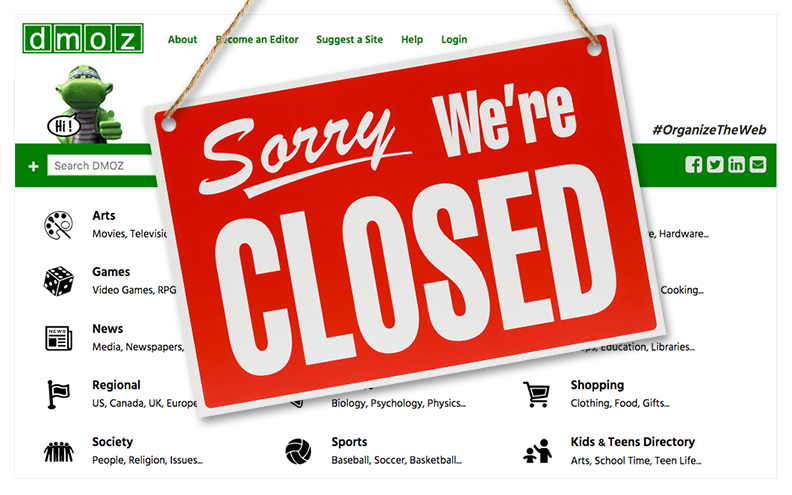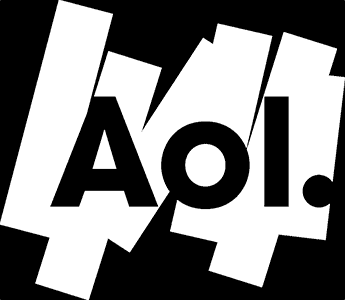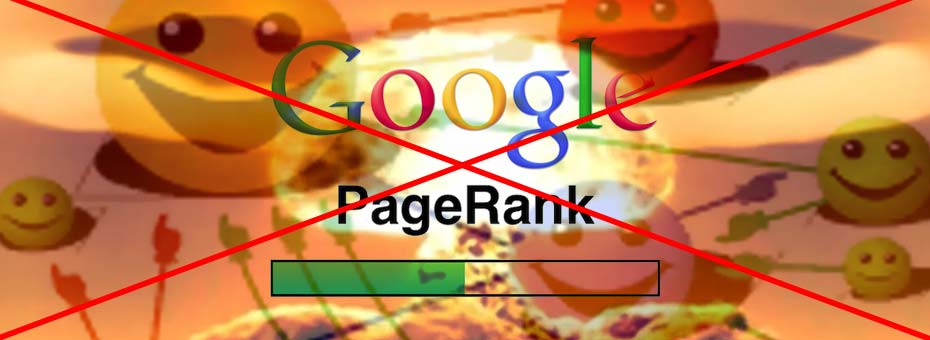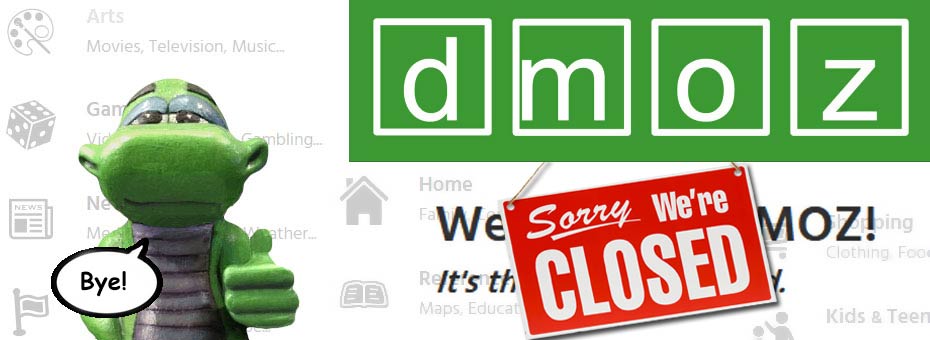The Directory Mozilla Open Source project ( DMOZ ) is now closed!
Standing tall for more than 19 years now the DMOZ has closed its doors to the internet. Source is WHOIS from January 2nd of 1999; To today where the announcement was made on their site March 17th, 2016. Also, there was two years where DMOZ/ODP was known as "Gnuhoo" which totals its 19-year existence. This news was discovered to us thanks to our broken links detection tool . WordPress users such as ourselves have this plugin installed. This hit us personally hard because of what the Open Directory Project stood for. Also, the simple fact that after many years that this very site was listed in the /Society/People/Furry/Personal Pages category of their site.
Read on for more.
Special notes.
A lot of the images were pulled as screenshots or under their wiki as creative commons. No money is made from this blog and this blog is heavy in opinion so we may not be the best site to use for citation. Please read the FAQ for more generalized question.
We do find it odd that DMOZ placed furries under /Society/People/Furry/Personal Pages Instead of /Society/Subcultures/Furry/Personal Pages. The addition of the furry fandom must have happened early on in the existence of DMOZ.
First off, what the hell is the DMOZ?
DMOZ.org (from directory.mozilla.org which was its earlier domain name.) Was originally known as ODP (Open-Source Directory Project.) This website served as the largest and possibly the last standing human editable and curated search engine database. During the sites, inception search engines such as Yahoo and Google based their infrastructure off of the ODP (Open Directory Project).
The impact to the early foundation of the internet.
In the early days of the internet, spiders did not go out their way crawling websites obsessively to the point where they are not pinging IP addresses to find content. What if your website was not published on the DMOZ? You minus well have been cast out the "dark-net". Oh, the nightmares people had. The DMOZ attempted to fill the void by having a means to publish your website and make it known. The old web used to be very tedious in respects that you had to submit to all of the engines. ODP/DMOZ took all of that hard work out of it for you.
This type of tool was desperately needed during the foundation of search engines which were in the process of automation. Old sites like Altavista, Excite, and Yahoo of the earth was getting hammered from quick start-up sites thanks to the y2k-boom. DMOZ restored a bit of sanity back to searching for articles and websites. In order to get onto DMOZ, someone had to actually look at your website to determine if it was legit. This is one reason why it took a personal blog site like ourselves 3 years to get onto DMOZ.
What happened?

Although the editors and curators of the old DMOZ system refrain from saying a whole lot as to what happened. Because it's not their place to say. It's AOL.com that should make the announcement. The unconfirmed thought process is that AOL (American Online for the younger audience was a big-time dial-up ISP of the 90's.) No longer wishes to be footing the server and bandwidth bill for this open-source venture. This is rather believable since Netscape went from being the number one browser on the net in the 90's to being condemned into a state of obsolescence thanks to AOL. Another project AOL bought was WinAMP which I go into detail about how AOL mangled and destroyed that in this blog.

So, the "Mozilla Directory" project was owned by AOL?
As confusing as that is. The statement above is 100 percent correct. The ambitions of AOL being the number one place to go for all things internet-related during the late 90's. AOL in a sense is behaving in ways Google is now with all of its sub-functions like YouTube, Gmail, Google+ and so on. While Mozilla which was a branch off of the old Mosaic browser system broke off to make things like FireFox and ThunderBird. AOL wished to retain the search engine database that Mozilla was founded upon. Like all projects under the hands of AOL it sat and did nothing.
This is very traditional for AOL. As a company, they've made terrible decisions for years now. It was a matter of time before the DMOZ would have been next on the chopping block.
The dark days of DMOZ.
This isn't to state that the DMOZ does not have its fair share of problems. That those 17 years of operation weren't all but flawless butter that everyone got to slide down upon with their cheeks. One of the things that caused the DMOZ to go into a state of data-rot as you could probably see in old screen captures of the site mentioning Netscape and AOL is that DMOZ was a victim to its own popularity. There was legitimate value to be listed on the DMOZ and every website during the early to mid 2000s was piling onto an already anemic curation system.
Who's to blame? "Search Engine Optimization" ass-hats gurus.

This problem was amplified thanks to other services such as Google PageRank basing its score on being listed to the DMOZ. Googles actions resulted in the untold amount of fraudulent websites trying to get into DMOZ. It wasn't until above a year ago that DMOZ began to get back on its feet again after years of silence. This is thanks to Google PageRank dying. And finally other SEO services walking away from the ODP as a viable metric. In essence the landscape of the net changed. DMOZ was not cool to SEO-shark companies anymore. Most marketing types that are involved with the concept of SEO used DMOZ and then threw it away like some $5 hooker scoffing at its antiquity of their site.
I'm a website operator! I'm going to freak out on a bunch of non-paid people because they didn't publish my site!
When visiting DMOZ forums we've seen a few postings in their general forums. About web-admins freaking out on them because their content was not published immediately. People who practically volunteer their time to update the database are abused like this on a daily bases. Which we suppose this is one problem with dealing with a human editable database. That you have to deal with humans rather than shouting at an anonymous cloud. There are some underlying attitudes about the abuse that happens which would drive anyone into the dirt. It sucks but this is just an observation noted purely off of their forums that must be mentioned.
Dead? No, dark. There's a difference.
We won't be like other bloggers and cry (DMOZ IS DEAD!!! OHH NOEZ!) because there's always a possibility that another server or even Mozilla themselves that can rightfully take their database back from AOL as a welcome edition. Although understand that the directory system was Open-Source and that someone else can easily revive the project under another name if AOL wants to be a group of ass-hats with the domain name. Currently, DMOZ has gone dark. If their status changes then I will update this blog article.
Mirrors.
- As this article is getting published there is already tweets about people setting up mirrors which is the easy part since the database itself was all open source feel free to check it out at http://www.freemoz.org/ . The real hard part is getting an administrative team together to actually build/update the database.
- Also, http://dmoztools.net/ is another site which is hosting the database in a read-only fashion, no entries will be added or removed until an infrastructure is put into place.
Curlie.
- https://www.curlie.org/ - I have to place Curlie into it's own category instead of just throwing it into mirrors as we feel that it could be the reincarnation of dmoz.org . Many of the editors are behind this project and we hope to see it fully online soon!
Other website listing directories.
Many website listing services do not function in the way DMOZ operates. Many of them operate under the "Pay to play" logic where in order to submit your website to their directories that you may pay a nominal fee of a few hundred bucks. This, of course, means your site will be listed faster than the DMOZ but what is the real value of being listed? a few back-links? Not something to spend hundreds of dollars on!
Wiki:
But S, Wikipedia is practically doing the job of the DMOZ. Therefore DMOZ is irrelevant.
This would be true except for the basic rules about Wikipedia that you cannot start up an article about yourself or attempt to use Wikipedia as a site for promotion. This is the major difference between DMOZ and the Wiki network. DMOZ willingly accepted websites that wanted to be known by the owners of those sites. In order for you to be mentioned on Wikipedia other people have to submit you to their network and even if you are submitted there's a possibility of being taken down if you're not important enough to be mentioned by the internet. Wikipedia is harsh that way but it needs to be in order to maintain its own state of sanity.
Final thoughts.
![]()
Sure, it was a little old and clunky. DMOZ still used a hierarchical format that is akin to the Use-Net era. But attempts (all-be-it conservative.) Were being made to give the database a facelift. Perhaps it was just a case of too little too late. If this is the last blog article about the DMOZ and it isn't coming back then I don't think the rest of the world really understands what it is they are loosing. DMOZ was a little more than an old database that went through tough times. But it's actually a piece of internet history. Without a database run by actual people to act as the checksum of the net. This leaves sites like google/bing to literally determine the fate and identity of you on the internet. We were honored to be accepted onto the DMOZ. We hope that one day and in one form, that Mozilla green mascot lizard can return to us all.
For those who want to help get DMOZ back on their feet again, you can check them our on their forum.
Until then, server protect you. And don't die.
END OF LINE+++


I hope it'll come back. Please let me know if it does!